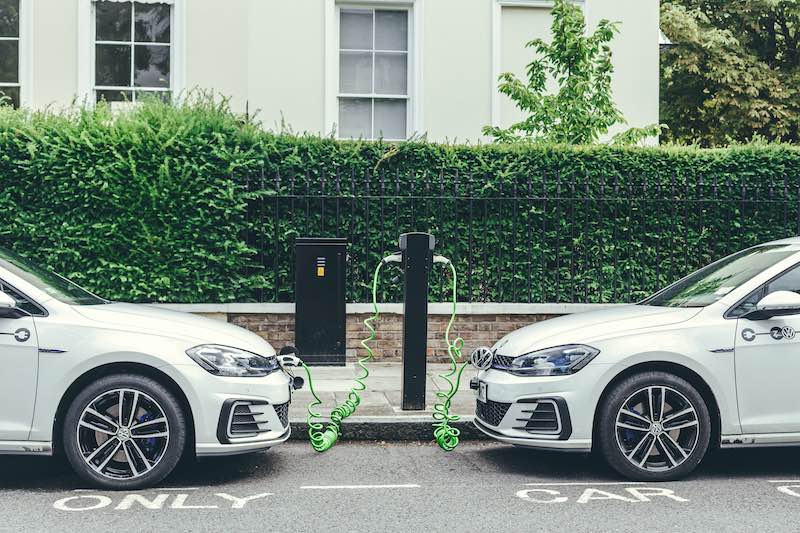Switching to EVs Could Save Britons £57k on Fuel Costs

Britons wary of the impending ban on petrol and diesel vehicles will be reassured to know we’ll all save dramatically on fuel costs when we make the leap to electric.
The government recently confirmed that it will ban the sale of new petrol and diesel vehicles by 2030, five years earlier than previously scheduled. While electric alternatives still have a higher price tag than fossil fuel vehicles, they’re much cheaper to run.
Big Six energy supplier EDF has calculated that the lifetime cost of charging an electric vehicle is just £6,000—paid through electricity bills or at public charging stations. Comparatively, British motorists spend £63,000 on fuel during the lifetime of the average petrol or diesel vehicle.
EDF itself offers a tailored GoElectric vehicle for those charging an EV at home. The deal gives drivers access to cheaper electricity—priced at 4.5p per kilowatt-hour—during off-peak hours for recharging their vehicle.
And the benefits of EVs aren’t just in cost. EDF has also calculated that the collective carbon footprint of the 32.4 million internal combustion engine (ICE) vehicles on the UK’s roads is 14 times what it would be if all those vehicles were switched to electric.
If all those petrol and diesel vehicles are driven an average of 7,600 a year, they will emit 69.5 million tonnes of carbon dioxide each year.
The same number of EVs would emit just five million tonnes of carbon dioxide, mostly from the generation of the electricity they use.
Philippe Commaret, Managing Director for Customers at EDF said: “EDF support bringing forward the ban on petrol and diesel vehicles to reach our net zero target.
“As long as we continue to make progress in decarbonising our power generation through renewables and new nuclear, encourage smart charging and provide the right investment in EV charging infrastructure, then we believe that bringing the date of the ban forward to 2030 is feasible.”
However, climate advocates have warned that even the accelerated ban on ICE vehicles may come too late.
New Automotive, a transport thinktank backed by the Quadrature Climate Foundation, has calculated that a 2030 ban will cut car emissions to 46 million tonnes of carbon dioxide by 2030, from 68 million tonnes today.
However, that’s still 40% higher than the interim target of cutting car emissions to 32.8MtCO2e (metric tonnes of CO2 equivalent) set by the Committee on Climate Change (CCC), the government’s independent climate change advisors.
The thinktank says the government would need to bring forward the sales ban for ICE vehicles to 2026 or introduce measures to reduce car use before then in order to meet the 2030 target.
Additionally, “a ban in the 2030s will do nothing to tackle the long tail of polluting cars that will be left on our roads for many years to come,” the report said.
Read on our blog

With the government poised to implement tough new measures to...

Budget broadband provider TalkTalk has been notifying customers via email...

A year-long investigation by charity Citizens Advice has revealed a...

Education Secretary Nadhim Zahawi has announced a new commitment to...
